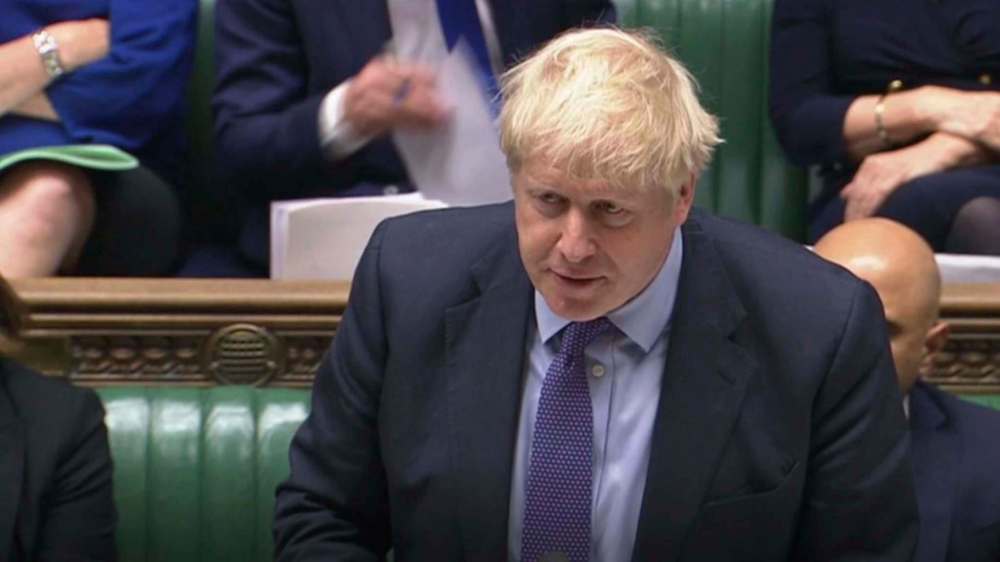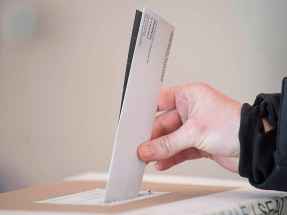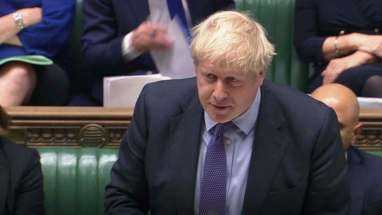No Brexit relief in deeply divided U.K.
Read this article for free:
or
Already have an account? Log in here »
To continue reading, please subscribe:
Monthly Digital Subscription
$0 for the first 4 weeks*
- Enjoy unlimited reading on winnipegfreepress.com
- Read the E-Edition, our digital replica newspaper
- Access News Break, our award-winning app
- Play interactive puzzles
*No charge for 4 weeks then price increases to the regular rate of $19.00 plus GST every four weeks. Offer available to new and qualified returning subscribers only. Cancel any time.
Monthly Digital Subscription
$4.75/week*
- Enjoy unlimited reading on winnipegfreepress.com
- Read the E-Edition, our digital replica newspaper
- Access News Break, our award-winning app
- Play interactive puzzles
*Billed as $19 plus GST every four weeks. Cancel any time.
To continue reading, please subscribe:
Add Free Press access to your Brandon Sun subscription for only an additional
$1 for the first 4 weeks*
*Your next subscription payment will increase by $1.00 and you will be charged $16.99 plus GST for four weeks. After four weeks, your payment will increase to $23.99 plus GST every four weeks.
Read unlimited articles for free today:
or
Already have an account? Log in here »
Hey there, time traveller!
This article was published 22/10/2019 (2246 days ago), so information in it may no longer be current.
Britain’s struggle with itself over cutting ties with Europe this week became a war of procedural moves in Parliament. The series of tactical manoeuvres somewhat obscured the high principles that were formerly invoked to show why the U.K. either should or should not withdraw from the European Union.
It no longer seemed to matter Britain might look forward to a bright future as a world trading country once it cut loose from the EU. Nor was it so important the EU had given Europe a half-century of peace and growing prosperity, breaking off the endless series of wars that devastated the continent in the preceding centuries.
The two sides — the leavers and the remainers — long since ceased listening to each other and trying to persuade each other. The game became a contest to stop the other side from winning.

British Prime Minister Boris Johnson and his Conservative government continued pressing with all possible speed toward withdrawing the country from Europe before his cherished deadline of Oct. 31. Parliament voted in early September to require Mr. Johnson to write a letter to European Union authorities asking for a three-month extension of the deadline for withdrawal.
Mr. Johnson sent the (unsigned) letter, in a grudging manner, but sent a second signed letter at the same time saying the Oct. 31 deadline should still be met. Government efforts shifted to compelling Parliament to ratify promptly the proposed terms for withdrawal. The opposition parties concentrated on prolonging the discussion.
Mr. Johnson repeatedly threatened to call a general election if Parliament would not conform to his timetable. This week he demanded passage of the withdrawal legislation through the House of Commons by week’s end. Opposition parties complained that such momentous legislation deserves longer study and debate.
Neither camp wants to trigger a general election until they have the other side at a disadvantage. If one side or the other can be made to look scandalously unreasonable, then the other side might pull the plug. This week, the two were circling each other, bobbing and weaving, like pugilists looking for an opening to land a telling blow.
The deadlock might be broken if the British public were shown some real evidence proving one way or the other whether leaving Europe is advantageous for the country, but there was no apparent way of producing evidence to that effect.

The people who want out, or many of them, want Britain to control its own affairs, even if that leads to local mismanagement. Better to be mismanaged by your own neighbours than overseen by foreigners gathered at the EU headquarters in Brussels.
The people who want to stay in Europe, or many of them, enjoy the freedom to trade and travel across Europe, to retire to Spain, to employ Polish plumbers and electricians to work on their British homes. They are no longer open to persuasion Britons can live quite satisfactorily behind the trade and migration barriers that withdrawal will erect around the British archipelago.
Three and a half years have already passed since the referendum by which the British public voted to quit Europe. The two sides are so nearly equal in numbers and conviction that the ordinary democratic processes cannot readily bring the contest to a conclusion. A procedural error by one side or the other could suddenly yank Britain out of Europe — or keep the struggle going another few months.









